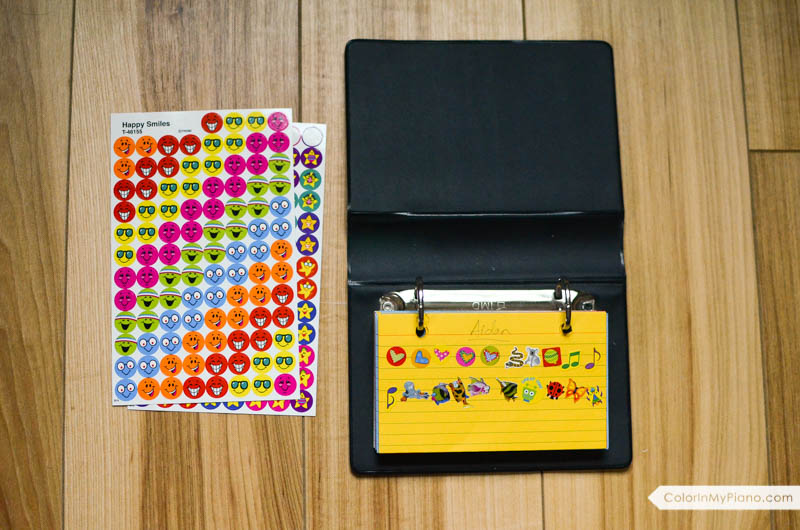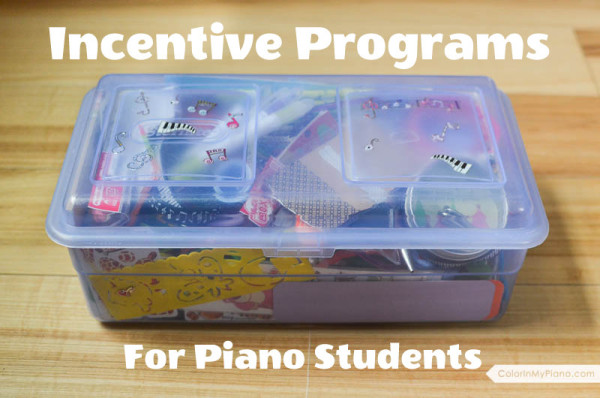As a fellow piano teacher, I can’t stress enough how important it is to have written Studio Policies. They’re great for letting new students know about how your studio is run! It will help improve the level of communication between you and the parent/student, because it becomes more clear what you each expect of each other.
Things to include in your Studio Policies handout:
- Studio name. This may seem insignificant, but it’s surprising how much more professional you will look just by naming your studio. It doesn’t have to be fancy; just try something like Piano Studio of Joy Morin or The Morin Music Studio.
- Yearly Calendar. It doesn’t have to be detailed by any means. Just state when lessons will be beginning and ending (e.g., September 1 – June 1) and when the holiday breaks will be Continue reading “Studio Policies”


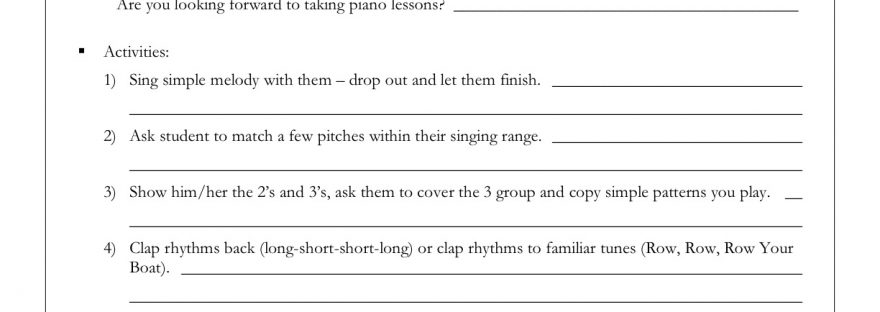
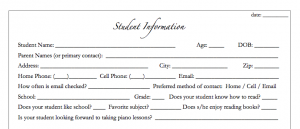
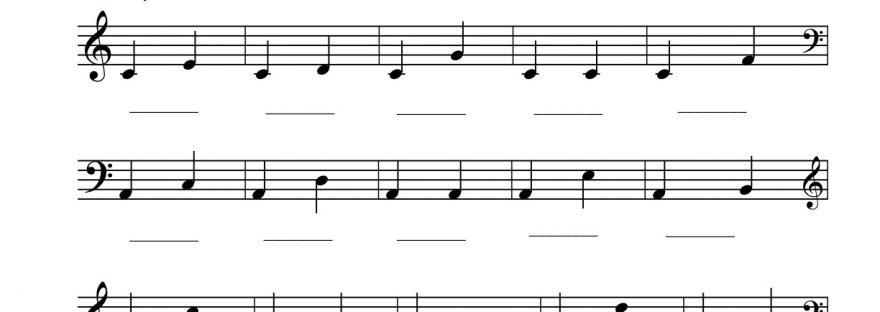
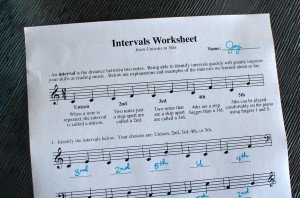 Do you find yourself telling students how much easier it would be if they learned to recognize intervals on sight when they are sight-reading? Here are two new free, printable worksheets, designed to help students who have difficulty distinguishing between different intervals on the staff. The first one is for younger students who have just begun reading staff notation. It teaches and quizzes the difference between unisons, 2nds, and 3rds. The second worksheet is a little bit harder, adding 4ths and 5ths into the mix. Enjoy!
Do you find yourself telling students how much easier it would be if they learned to recognize intervals on sight when they are sight-reading? Here are two new free, printable worksheets, designed to help students who have difficulty distinguishing between different intervals on the staff. The first one is for younger students who have just begun reading staff notation. It teaches and quizzes the difference between unisons, 2nds, and 3rds. The second worksheet is a little bit harder, adding 4ths and 5ths into the mix. Enjoy!
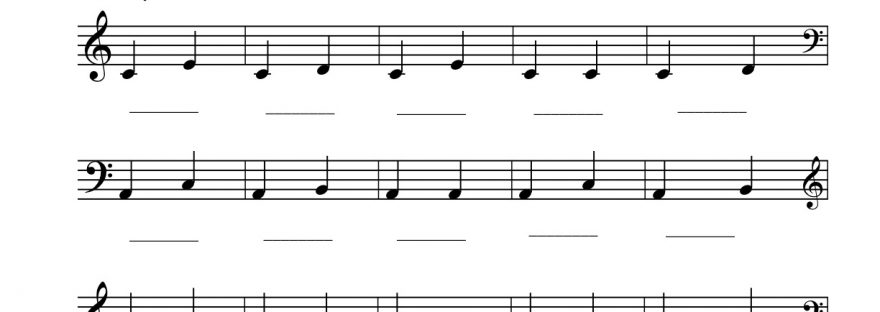
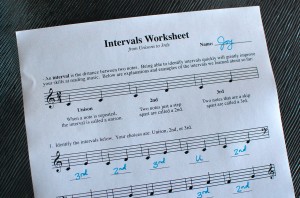 Do you find yourself telling students how much easier it would be if they learned to recognize intervals on sight when they are sight-reading? Here are two new free, printable worksheets, designed to help students who have difficulty distinguishing between different intervals on the staff. The first one is for younger students who have just begun reading staff notation. It teaches and quizzes the difference between unisons, 2nds, and 3rds. The second worksheet is a little bit harder, adding 4ths and 5ths into the mix. Enjoy!
Do you find yourself telling students how much easier it would be if they learned to recognize intervals on sight when they are sight-reading? Here are two new free, printable worksheets, designed to help students who have difficulty distinguishing between different intervals on the staff. The first one is for younger students who have just begun reading staff notation. It teaches and quizzes the difference between unisons, 2nds, and 3rds. The second worksheet is a little bit harder, adding 4ths and 5ths into the mix. Enjoy!